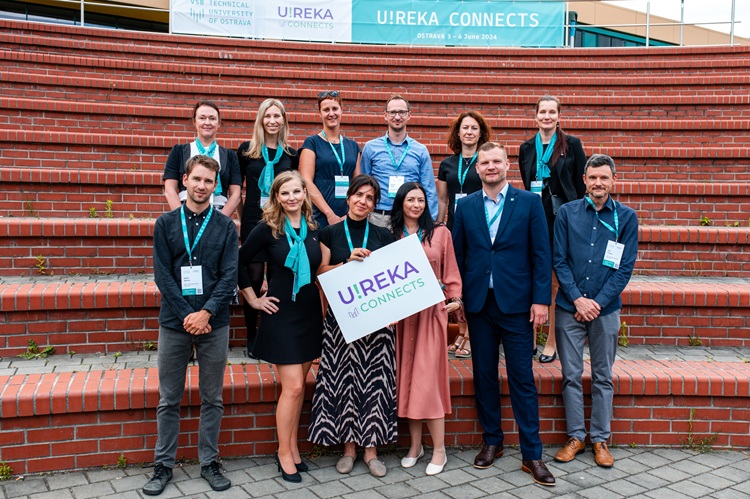The Future of U!REKA: How the Alliance is Changing the Educational Environment
How does U!REKA affect our university, students and staff? What are the ambitions of the project until 2027? All this and much more comes with this interview.
What is your role in U!REKA?
I am a member of Work Package 6, which focuses on staff training, micro-certificate preparation and joint study programmes. Our university is primarily responsible for the latter area.
How did you get into U!REKA?
I joined U!REKA at the very beginning, when our university was invited to join. At that time, support from the European Commission was still an unattainable goal, and discussions in the working groups were rather disorganised. Yet it was then that the foundations of the U!REKA alliance as we know it today were laid.
You organised EduForum at VSB-TUO. How difficult was it to prepare such an event?
The hardest part was deciding what we wanted to say to the participants and who to focus on. Once this was clear, all we had to do was develop the programme and reach out to experts from our neighbourhood to share their experiences. A foreign guest, Sam Illingworth from Edinburgh Napier University, offered himself to us because he was at the university at the time. He is an expert in his area and fits in perfectly with the programme, where he will present the practice of professional development of staff.
What is the most important task for you at U!REKA this year?
This year we are focusing on progress in the field of micro-certificates, which are short-term courses extending the specialisation that universities will offer. We are in charge of this task together with a new member of the team, Lucka Best, who coordinates this area.
What is the difference between Erasmus+ and European universities?
The Erasmus+ programme offers students and staff the opportunity for mobility and foreign experience. In contrast, the European universities go further and the goal is deeper integration of the institutions within the alliance. Students will be able to enjoy the international experience directly in their studies, without having to undergo the classic Erasmus mobility.

"Students will be able to enjoy the international experience directly in their studies, without having to undergo the classic Erasmus mobility."
What do you think U!REKA will bring to the whole university, students and staff?
U!REKA will bring an unprecedented level of internationalisation to our university, starting to transcend the borders of the region and countries. The university will become a true European institution. It will bring new opportunities for students and staff in their studies, teaching and research, improve the plurality of approaches and opinions, which will lead to an increase in the quality of academic discussion.
Are there any joint study programmes, courses and the like?
This year, 50 new courses will be offered across universities, while joint study programmes are being developed for downstream and doctoral students at three faculties (HGF, FMT, FAST). There are already training courses for staff available on the U!REKA website, and staff can take courses on digital tools or the organisation of COIL courses.
The project ends in 2027. How do you see U!REKA in 2027?
2027 will still be a relatively early year for U!REKA, when the alliance will become increasingly integrated. At that time, students will be able to choose subjects from the offer of five other institutions, and staff will be regularly trained by colleagues from Belgium or the Netherlands. The research teams will work closely together. In 2028, we can look forward to the new challenges that the project will bring.